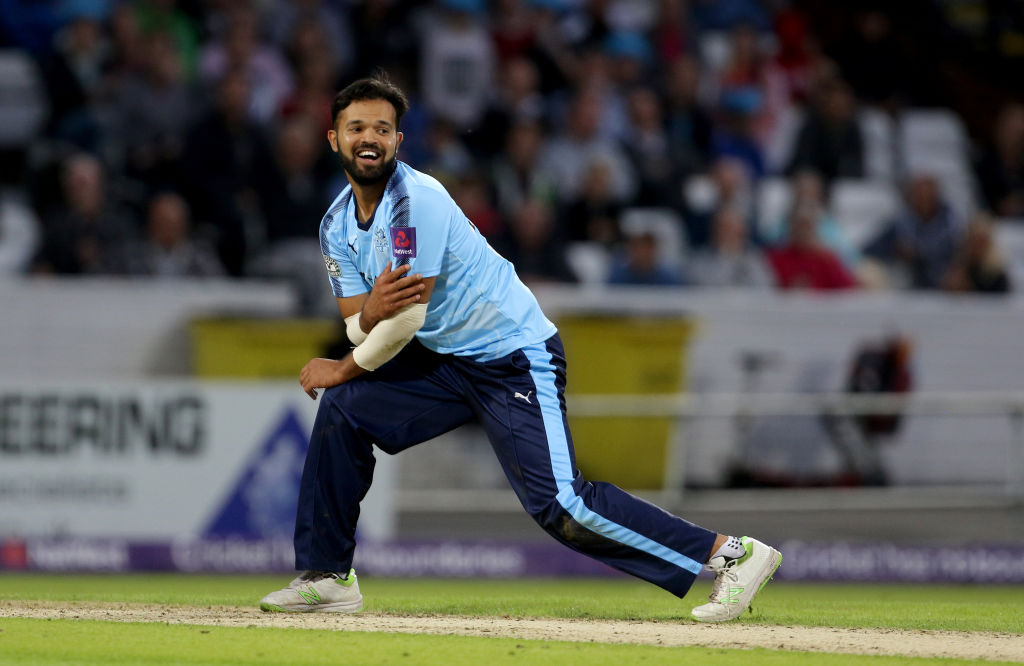Azeem Rafiq fallout: How much did sponsor pressure contribute to resignations?

The business of sport and sponsorship is volatile at the best of times, an ever changing landscape of decisions and consequences.
It is nothing new for sponsors and clubs to renegotiate their terms – the Indian Premier League saw this in the wake of the Covid-19 pandemic – or quit altogether, as Norwich City decided to do with BK8 in June.
But when the issue at hand is racism, discrimination and a club failing to uphold societal equality, are sponsors a catalyst for change or just a wider symptom of moral responsibility and reaction?
The fallout surrounding the Azeem Rafiq scandal has seen sponsors terminating contracts, chairmen and board members resigning, the involvement of cricket’s national governing body and even government ministers intervening.
Rafiq allegations
Rafiq, a former bowler at Yorkshire County Cricket Club (YCCC), alleged discrimination and racism against his employer and its employees.
Included in those allegations were racist remarks and derogatory behaviour, and a systematic ignorance from the club towards Rafiq.
More than a year after he lodged the claims, it emerged that an investigation upheld seven of his 43 allegations.
At the time, Rafiq said: “At my worst, I was right on the edge, stood on my balcony. I would regularly come home from training and cry all day. It was a very difficult time for me.”
Details of the concluding report made for grotesque reading.
YCCC are alleged to have likened racist abuse of the bowler to “banter”, found evidence of “racial harassment and bullying” towards Rafiq and yet concluded that no action be taken against those implicated, including former team-mate and England batsman Gary Ballance.
“Wow. Just when you think this club couldn’t get more embarrassing you find a way,” Rafiq said following YCCC’s announcement of actions at the end of October. “Still awaiting the FULL report.”
The fallout
Since then, sponsors including Nike and Yorkshire Tea have severed ties with the club, the England and Wales Cricket Board (ECB) have suspended the right for the club to host international matches, government officials have condemned the report and the chairman Roger Hutton has resigned.
The criticism of the report and its lack of meaningful action has come from multiple angles.
Nike, which began its sponsorship of the club in March, said it “will no longer be the kit suppler of Yorkshire” and that they “stand firmly against racism and discrimination”.
Another sponsor, Emerald Publishing, said “we have taken the decision to remove our brand association with Yorkshire” and “we hope YCCC will listen and respond with serious action”.
Commercial partners are important to sports organisations. They’re kit suppliers, financial advisors, income sources. They have consumers and perceptions to think about as much as they have profits and losses.
“Sponsors will rarely make such significant financial decisions without careful consideration,” says Neil Hopkins, head of global strategy at M&C Saatchi Sport and Entertainment.
“But if they make such a move, especially en masse as has been the case at Yorkshire, then their actions can contribute to a heightened sense of crisis.
“Once the actions of a partner is deemed to put at risk how a sponsor’s brand is perceived by customers or shareholders, few will hesitate to act.
“In these sorts of circumstances, sponsors pulling out of deals tends to be a symptom rather than a cause of a story gaining momentum or coverage.”
International match suspension
Sponsorship is thought to contribute around 10-15 per cent of Yorkshire’s annual income.
The right to host international fixtures, meanwhile, is financially huge, with a Test match in England earning the ECB around £30m. The clubs who host them benefit from that, too.
In its response to the report, the ECB said it would suspend and review Yorkshire’s right to stage those fixtures, including the matches the club are due to host next year.
“It’s embarrassing to lose sponsors but the ECB suspending international cricket there will be the big one that hits them hard financially,” said Ged Colleypriest, the founder of Underdog Sports Marketing.
In addition to this governing body response, health secretary Sajid Javid said “heads should roll” in a tweet that has over 5,800 likes.
The Digital, Culture, Media and Sport select committee also summoned then Yorkshire chairman Hutton to give evidence, with Julian Knight MP calling the timeline of events “one of the most repellent and disturbing episodes in modern cricket history”.
Rafiq has an invite from the committee, too. And under parliamentary privilege, he has a platform which could very much damage Yorkshire further.
The factors at play
There are many factors at play here. The governing body has, in recent weeks at least, acted in a robust manner and sponsors have pulled their ties, government has demanded answers and society has been outraged at how the fallout has unfolded.
“The reaction has come unanimously and at the same moment from the ECB, sponsors, fans and government,” says Jon Lane, founder of sponsorship consultancy Brand Affair.
“I do not think any one of these stakeholders singularly caused the board resignations.
“The challenge for Yorkshire will be to entice brands back once they have their house in order, assuming that they do manage this.”
Since this commercial pressure was exerted, Hutton has resigned alongside a number of other board members, Lord Patel has been made temporary chair and Yorkshire have begun the long and arduous road towards respectability once again.
There was no one catalyst for change at Yorkshire. It was a series of symptoms that pointed to an unpleasant diagnosis of the club.
Clubs rely on financial streams, and the one provided by the honour of hosting England matches outweighs any sponsorship income. Though in a situation like the one Yorkshire find themselves in, their short-term financial impact won’t matter nearly as much as their new reputation.